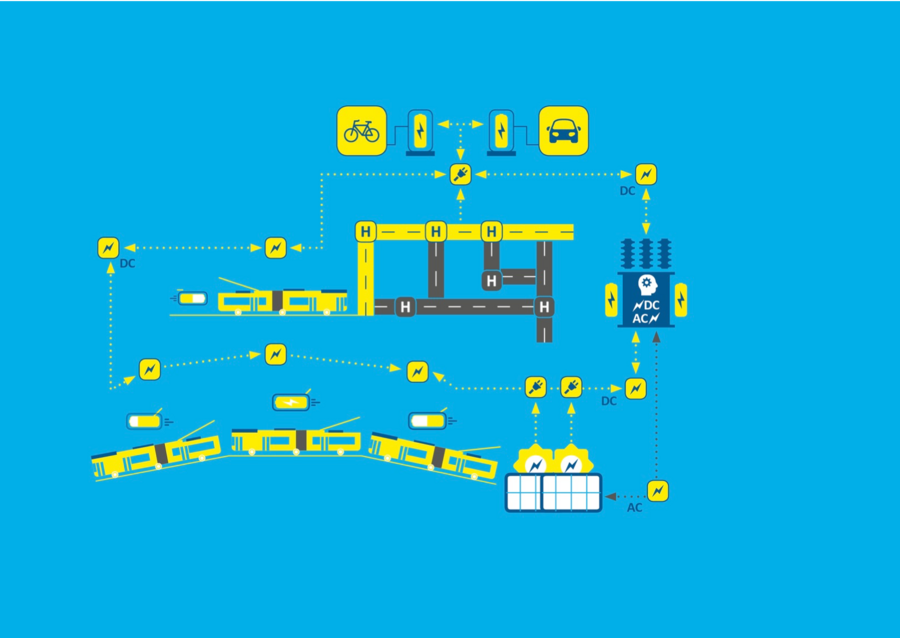BOB Solingen - Using Battery Overhead Line Buses and an Intelligent Infrastructure for Zero Emission Public Transportation

Project Duration:
February 2017 - December 2022
Consortium:
- University of Wuppertal
(Chair EES)
- City of Solingen
- Stadtwerke Solingen - Verkehrsbetrieb
- SWS Netze Solingen
- etSystem GmbH
- Voltabox AG
- Neue Effizienz GmbH
Funding:
Federal Ministry for Digital and Transport (BMVI)
Website:
www.bob-solingen.de
Article:
BUW Output 18/2017
Description
The complete electrification of a transport company poses challenges for cities and municipalities. That is because the alternatively driven vehicles must also be energy-supplied.
What works well on a small scale causes problems when dealing with fleets of a hundred or more vehicles.
The public transport company in Solingen, with its overhead line network and battery-operated trolleybuses (BOB), is a good deal closer to solving this problem than most cities, because the BOB charges while driving. In this way, more than half of the passengers are already transported purely electrically - and the trend is rising!
For this reason, among other things, the BOB Solingen project: With the battery trolley bus (BOB) and the intelligent overhead line infrastructure for emission-free public transport, is funded directly by the Federal Ministry of Transport and Digital Infrastructure with almost 15 million euros.
While the chairs for Electrical Energy Supply Technology and Electrical Machines and Drives deal with topics related to infrastructure, the chair for Electromobility and Energy Storage Systems focuses on the vehicle itself during the five-year project period.
For example, one goal is the development of a local parameter set to describe the flexibility of use (both in terms of traffic in regular service and terms of energy in the supply network) of a bus. That doesn't sound that complicated at first. However, the flexibility of use depends on the battery' SOC (state of charge) and the predicted energy requirement of the bus. These parameters are thus dependent on the current position and route of the bus, passenger and traffic volume, and the weather conditions.
In order to increase operational flexibility, the design, verification and validation of a driver information system is another aim of BOB.
The driver information systems should encourage drivers to drive as efficiently as possible by means of targeted information and thus further increase the sustainability of bus operations. The number of passengers is also of crucial importance for the flexibility of use of the buses. The actual number of passengers is less important compared to their cumulative weight. In city traffic in particular, with many braking and accelerating processes, the mass of the bus has a major impact on energy consumption. Ultimately, at the end of the project, it should be possible to determine the (overhead line-free) remaining range of each vehicle as precisely as possible under different environmental conditions and different passenger loads since this is the only way to determine reliable operational flexibility.
The development of a new type of current collector system is necessary for the absorption or delivery of high electrical power at stand-by, since conventional current collectors can only guarantee their maximum performance when driving due to thermal limits. This pantograph system is to be tested both in the laboratory and on a test vehicle.

Fig. 1: Overview graphic
